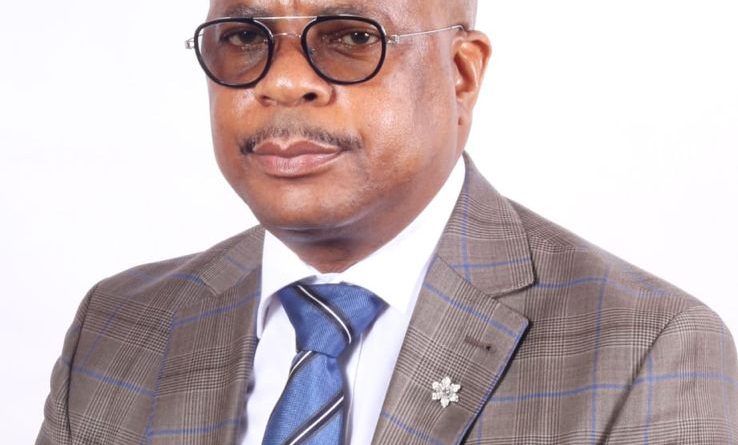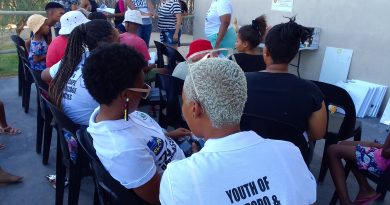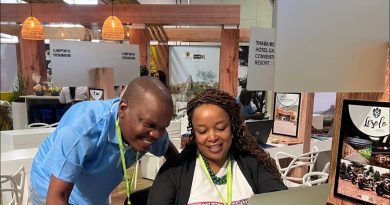Council approves SDM”s Budget
EDITORIAL
MOLOKO MOLOTO
A total annual expenditure budget of R1.5 billion.
This is what Council of Sekhukhune District Municipality approved during a special meeting on 27 May 2021.
It is for the 2021/22 financial year that starts in July 2021.
But what sticks out in this budget, is that the municipality has begun connecting metered water standpipes into yards, in villages, gradually doing away with standpipes in the street.
This year’s total budget saw a decrease of about 7% in comparison to the 2020/2021 financial year budget.
The R 1.5 billion total annual expenditure budget constitutes an allocation of R1.1 billion in operational expenses and just over R 400 million in capital expenditure for the 2021/22 financial year.
The approval was unanimously supported, without a single objection by any political party.
The ANC, EFF, DA, Bolshevick and Azapo represent the people of Sekhukhune in the Council of the district municipality.
Council commended the fact that it is a funded budget.
The budget tabled by the Executive Mayor Cllr Keamotseng Stanley Ramaila, outlines the allocation of funds toward service delivery priorities of the district municipality.
In putting this budget together, the municipality sought to maintain fiscal discipline, while catering for the basic and pressing needs of people.
As a water service authority, the district municipality has an obligation to achieve the objectives of Section 27 of the Bill of Rights.
That section says: the State must take reasonable legislative and other measures, within its resources, to achieve the progressive realisation of rights such as access to water.
THE BACKLOG IS HUGE, AND RESOURCES ARE LIMITED
Sekhukhune being a predominantly rural area, the district municipality is grappling with a massively historical water service infrastructure backlog.
The situation is that the financial position of the municipality is heavily reliant on conditional grants and subsidies from the National Treasury, Water & Sanitation Department and Cooperative Governance and Traditional Affairs Department.
When tabling the budget, Ramaila announced that: “The total annual capital budget for our district is R 424 million for the 2021/22 financial year.
The annual capital expenditure is funded through the R 413 million in Municipal Infrastructure Grant, (MIG) R2.3 million in Rural Road Asset Management Systems Grant (RRAMS) and R8.1 million in own revenue funds.”
He said this expenditure includes allocation of R3.9 million to purchase three new water carts.
This seeks to provide residents who do not have access to infrastructure with water.
“Overall total capital expenditure from conditional grants decreased from R505 million to R 424 million in the 2021/2022 and 2020/2021 financial years respectively.
Water Service Infrastructure Grant (WSIG) allocation has decreased from R53.4 million to R 50 million in-kind, while MIG and RRAMS are allocated R413.6 million and R2.3 million in the 2021/2022 financial year.”
MIG, which will go toward both water and sanitation services, is estimated to increase by 20%.
The RRAMS allocation which enables the district municipality to research and asses conditions of district roads, to assist the province and national with invaluable data, will increase by 5% in the 2023/2024 financial year.
YARDS CONNECTIONS TO REPLACE COMMUNAL TAPS IN THE SREET
“In several areas we have already begun with the connections of standpipes inside yards”
Ramaila said the municipality has decided to implement water reticulation projects differently henceforth.
Due to the enormous water infrastructure backlog in villages, and limited financial resources, the municipality had until now put communal standpipes out in the streets.
While this assisted in ensuring that more people shared the communal standpipe, but the model is not sustainable because people who afford, don’t pay for water.
Also, the communal system is susceptible to illegal connections.
Ramaila says the communal system is gradually being phased out.
“In several areas we have already begun with the connections of standpipes inside yards.
An amount of R63 million is set aside to complete the construction of reservoirs, bulk pipeline and reticulation in Ga-Maroga and Motlolo villages.
The yards connection projects in these two villages are well underway,” Ramaila says.
He adds: “We have also set aside R29.4 million to complete the yards connection project in Motlailana, wherein work is at 45 percent and to start new separate yards connection projects in Makgemeng and Taung villages.”
“A total of R32.7 million is budgeted to complete construction of reservoirs, bulk line and yards connections in Driekop, Ga-Riba, Frans, Ga-Madiseng and Mandela villages.
For the villages of Makgeru, Ratau and Matekane, we have set aside R85 million for the continuation of the reticulation network, which will also connect into yards.”
R28.6 million will go toward completing the bulk line and service reservoirs in Schonoord, Sengapudi,, Manamane and another parts of Ga Ratau villages.
For Ga-Mogashoa (Sengapudi) and Ga-Mogashoa (Manamane), R4.7 million was set aside for a reticulation network project, which will also connect into yards.
“The backlog is huge. It’s for that reason that we will p at nothing to ensure the people of Sekhukhune get value for their money,” Ramaila adds.




